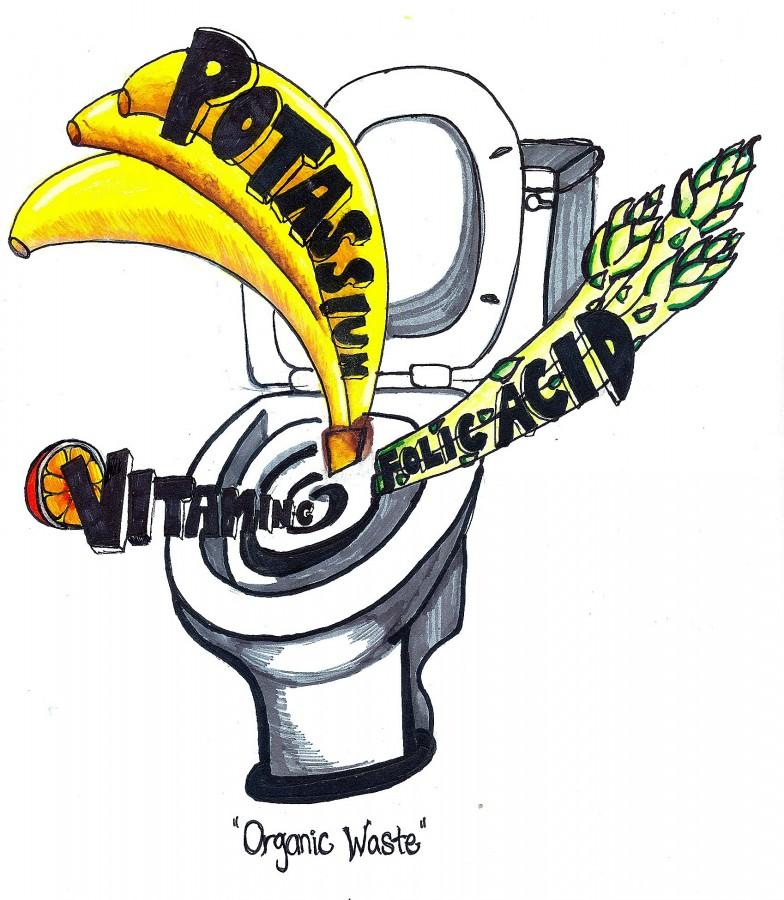Juice cleansing: the over-hyped fad
Acai bowls, avocado toasts and chia seeds are not just for health nuts — in fact, when looking at an Instagram feed, chances are a post has popped up about these supposed healthier alternatives. Juice cleanses and detox drinks are just the latest health craze to join the others, but they are not as healthy as they seem and should not be purchased.
These trends are surrounded by a halo of health because of their relation to fruits and vegetables. Most people are in favor of this simpler alternative to stay healthy and lose weight, and it is easy to see why. Due to the easy and efficiently packed bottles, juice cleanses are a quick grab-and-go that do not require hard work or valuable time spent, and it seems like a win-win for both companies and customers.
Business get the money they need, and customers do not need to put in hours for working out. Although the structure and ease of a juice cleanse may have mental benefits and fulfill a sense of self-accomplishment, in the end, the mental reward one feels is something the body will physically suffer for. Studies also show that a juice cleanse is not what everyone thinks it is cut out to be.
On the surface, the drinks do not seem harmful. They come in a variety of colorful shades, are cleverly packaged and are aesthetically pleasing. High-profile celebrities like Beyoncé, Anne Hathaway and Blake Lively endorse and favor the cleanses as well, leading others to believe that they are healthy and safe. Juice cleanses are in nearby stores everywhere, like the Pressed Juicery in Santana Row and San Francisco. When friends snap pictures or post pictures of them to social media, one cannot help but want to buy a juice as well. Juice cleanses may make one feel better mentally, but it creates health problems for the body and is an unsafe way to lose weight. In fact, after a juice cleanse, it is easy gain back the lost weight.
Although lost weight may show up on a scale after the first juice cleanse, the drop is due to the loss of water from the body. Because juice cleanses only provide half the calories a regular person intakes in a day, the body turns to glycogen stores and burns them for energy. The result of this is contrary to what one would assume from drinking liquids all day — the use of glycogen for energy depletes water from the body. And, as water depletes from the body, so does muscle. A detox is unnecessary to stay healthy and fit; the liver already naturally does that. From the lack of water to the approximately 800 calorie daily intake, juice cleanses can leave a person fatigued and dehydrated.
“Weight loss is not always about the numbers on a scale, it’s also about the ratio of body fat compared to lean muscle mass,” dietitian and spokeswoman for the Academy of Nutrition and Dietetics Joy Dubost said.
The best way to lose weight is to do it the traditional way with a healthy diet that includes enough protein, carbs, and calories and plenty of exercise. Healthy eating and exercise affect mental and physical health positively while juice cleansing can sap energy and make one nauseous.
“You are essentially starving yourself for a period of time while on the cleanse, and when you’re done, your body will fight back to gain back what it lost,” celebrity trainer Harley Pasternak said.
Social media may paint juice cleanses in a healthy light and portray them as beneficial, but in reality, the body will suffer the consequences. Save money, trouble, and precious time by avoiding the healthy facade of juice cleanses.




